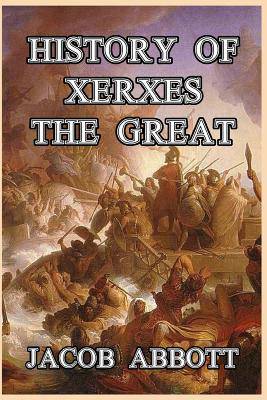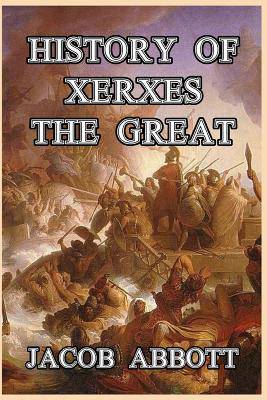
- Retrait gratuit dans votre magasin Club
- 7.000.000 titres dans notre catalogue
- Payer en toute sécurité
- Toujours un magasin près de chez vous
- Retrait gratuit dans votre magasin Club
- 7.000.0000 titres dans notre catalogue
- Payer en toute sécurité
- Toujours un magasin près de chez vous
Description
The story of Xerxes the Great (circa 519-465 BC), the fourth king of the Persian Achaemenid Empire, includes the battles of Thermopylæ and Salamis, famous in their own right-and which were pivotal to world and European history. The tale, woven by classic master storyteller Jacob Abbott is, as usual, free from the dry stuffiness which mars conventional historical accounts. Beginning with Xerxes' family background, the action starts straightaway with his interactions with Egypt and Greece, and the preparations for the invasion of that latter nation. Abbott's narration, based on meticulous research and primary sources, reveals the immense size of the Persian army, and that their ultimate intention was to conquer all of Europe. The Greek defensive preparations-spearheaded by the astonishing Spartans-are then reviewed. The mighty clash-and sacrifice-of the main Persian force and the 300 Spartans under Leonidas at Thermopylæ forms one of the centerpieces of the work. It is followed by the equally important burning of Athens and the Battle of Salamis, where the Persian fleet was destroyed. Finally, faced with stalemate in Greece and rebellion at home, Xerxes was forced to return to Persia. His army, routed at the Battle of Platæa, followed him home, and the Persian attempt to seize Europe was definitively defeated. "The name of Xerxes is associated in the minds of men with the idea of the highest attainable elevation of human magnificence and grandeur. This monarch was the sovereign of the ancient Persian Empire when it was at the height of its prosperity and power. "It is probable, however, that his greatness and fame lose nothing by the manner in which his story comes down to us through the Greek historians. The Greeks conquered Xerxes, and, in relating his history, they magnify the wealth, the power, and the resources of his empire, by way of exalting the greatness and renown of their own exploits in subduing him."
Spécifications
Parties prenantes
- Auteur(s) :
- Editeur:
Contenu
- Nombre de pages :
- 166
- Langue:
- Anglais
Caractéristiques
- EAN:
- 9781389664212
- Date de parution :
- 24-08-24
- Format:
- Livre broché
- Format numérique:
- Trade paperback (VS)
- Dimensions :
- 152 mm x 229 mm
- Poids :
- 231 g

Les avis
Nous publions uniquement les avis qui respectent les conditions requises. Consultez nos conditions pour les avis.






